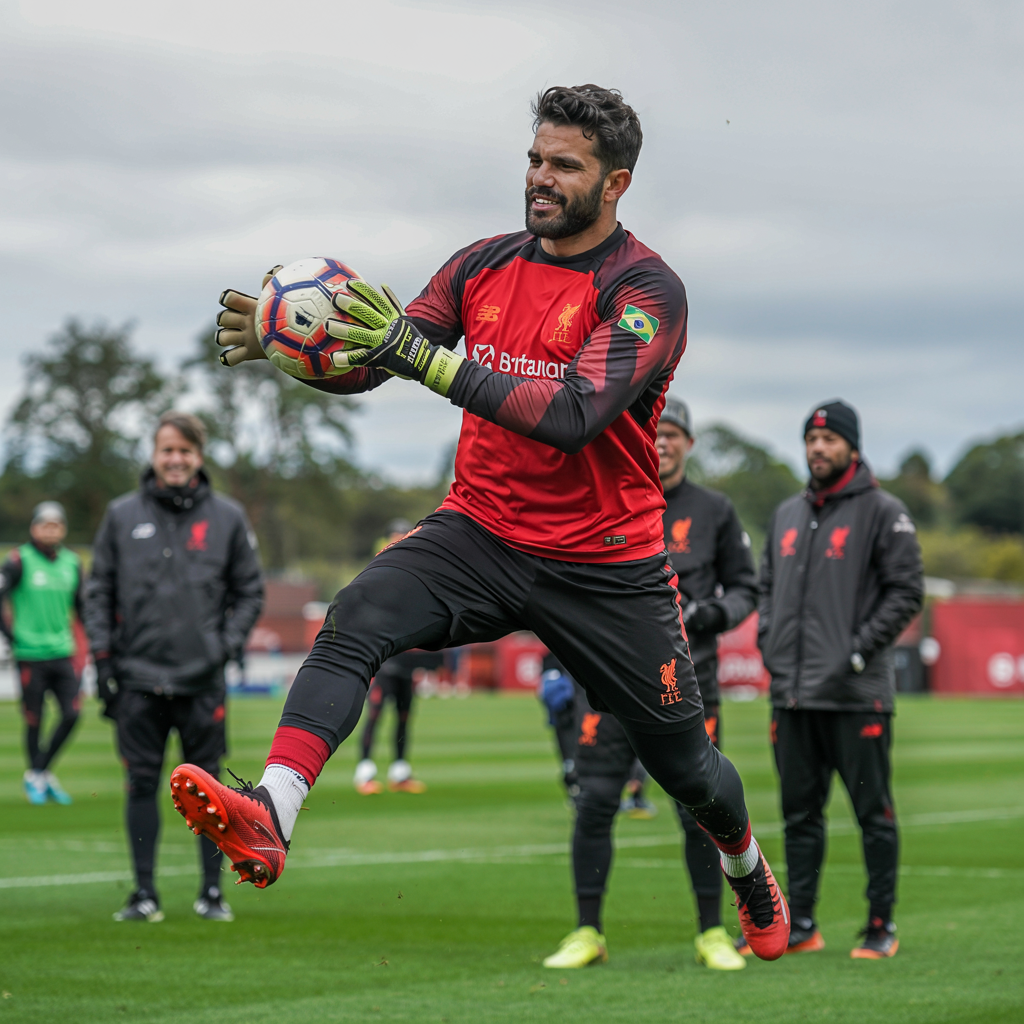Brazilian goalkeeper Alisson Becker has officially returned to full training with Liverpool FC, following a concussion sustained during a recent match with the Brazilian national team. His recovery marks a relief for both club and country, as Alisson remains a crucial figure in goal for the Premier League giants and the Seleção.
The incident, which occurred during a World Cup Qualifier, sparked concern after he was substituted due to a head-to-head collision late in the first half. Initial scans ruled out severe damage, but protocol dictated a precautionary absence from matches and contact training.
A Responsible Recovery Process
After returning to Liverpool, Alisson followed a phased medical protocol supervised by both the club’s medical staff and Brazilian team doctors. The process included:
- 48 hours of rest and neurological observation.
- Gradual return to light physical activity.
- Specialized neurocognitive testing.
- Final clearance for contact training sessions.
Club manager Jürgen Klopp confirmed that Alisson had resumed full training without limitations and is expected to be available for Liverpool’s next Premier League fixture.
“Ali is back, sharp, and hungry. He’s been patient, and we’ve done everything by the book,” Klopp told reporters in a pre-match press conference.
Why It Matters for Brazil
The timing of Alisson’s return is critical for the Brazilian national team. With Copa América approaching and World Cup Qualifiers set to resume, Brazil will be relying on his experience, shot-stopping ability, and leadership in the back.
Despite competition from rising goalkeepers like Ederson and Bento, Alisson is widely viewed as the most complete and reliable option for high-pressure matches. His command of the penalty area, distribution, and calm presence have made him a mainstay in the squad since 2015.
His return also brings stability to a team currently undergoing transition — both tactically and in leadership — following Dorival Júnior’s departure and the ongoing coaching search.
The Club-Country Balance
Alisson’s injury and recovery highlight the delicate balance elite players must maintain between club and international duties. With grueling travel schedules, limited rest periods, and increased intensity at both levels, top athletes are more susceptible to fatigue and impact-related injuries.
Liverpool, like many European clubs, has implemented enhanced communication protocols with national teams to track player workloads and medical updates in real-time. In Alisson’s case, coordination between the CBF and Liverpool’s medical department allowed for a seamless reintegration process.
The Bigger Picture: Goalkeeper Safety in Focus
Alisson’s situation has also reignited discussion around goalkeeper safety and concussion protocol in football. Though strides have been made in recent years, many experts argue that additional reforms are needed, including:
- Temporary substitutions for suspected concussions.
- Mandatory minimum rest periods.
- Use of headgear in certain cases.
While Alisson avoided long-term damage, the incident served as a reminder of the risks inherent to the position, especially in aerial duels and collisions.
What’s Next?
Alisson is expected to start in Liverpool’s next match, where his presence will be vital as the club chases domestic and European honors. For Brazil, his return provides much-needed reassurance as the team prepares for summer competitions under new leadership.
Both on and off the pitch, his influence remains vital — not only as a world-class goalkeeper, but as a role model in how to recover and return with professionalism and patience.
Conclusion: Safe Return, Stronger Presence
Alisson’s return to full fitness is good news for Liverpool, great news for Brazil, and a win for athlete-first recovery management. As one of the world’s top goalkeepers, his health is not just about shot-stopping — it’s about presence, leadership, and setting the standard for elite performance in modern football.
